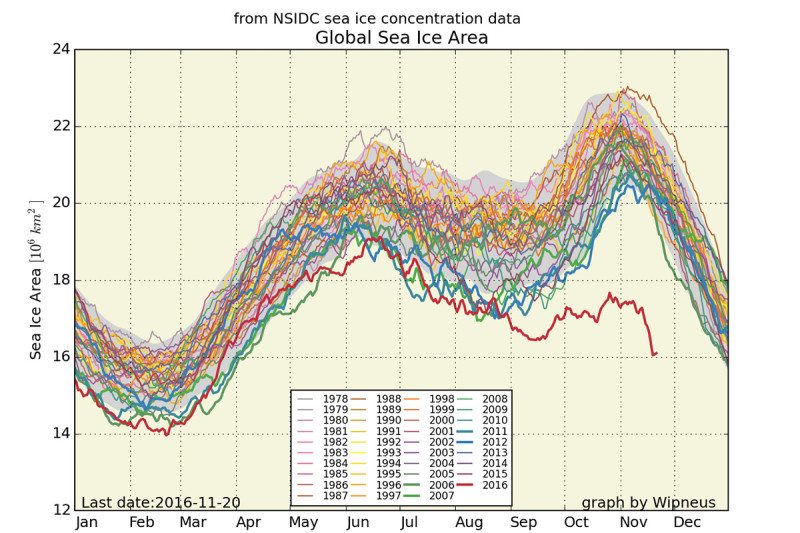I previously wrote an article which contained a simple calculation to estimate the amount of CO2 emitted by 1 litre of petrol. And it was a fairly popular blog post. From there it was easy to estimate the amount of CO2 produced by driving on one full tank of petrol.
When one litre of petrol is burned, 2.28kg of CO2 are produced, equivalent to 1268 litres of of CO2 gas!! Every single 50 litre tank full of petrol will produce over 63,400 litres of CO2 gas (63.4 m3), or a volume of pure CO2 gas equivalent to an imaginary cube with sides 4 metres long.
Now I’m going to calculate how much CO2 is produced by the fleet of 500-600 million cars worldwide using just one full tank of petrol and compare that figure with the total volume of the Earth’s atmosphere.
600,000,000 x 63,400 = 38,000,000,000,000 litres.
38 trillion litres on just one tank of petrol.
What’s the average annual petrol consumption? Average distance driven per year? Easier to get the stats from elsewhere at this point, more reliable:
Cars – together with power stations- are the main producers of CO2. Today 500 million cars world-wide emit four billion tonnes of CO2 into the atmosphere – around 20 per cent of the total quantity produced by mankind. And the number of cars on the road is growing rapidly – currently twice as fast as the world’s population. Forecasts assume that this number will reach 2 billion world-wide by the year 2030. This will mean that petrol consumption will grow to an estimated 1.3 billion tonnes by 2030. CO2 emissions from traffic would then increase to more than 7.5 billion tonnes. Source: greenpeace
I’m an ex-scientist. And scientists deal with numbers. It is our job to try and explain very large numbers to people.
I think we’re all very used to hearing the words ‘thousands’, ‘millions’, ‘billions’ and even ‘trillions’.
And we’re not used to measuring the weight of gases. We’re used to seeing their volume. Aren’t we?
So. If that happens, if CO2 emissions from traffic increase to 7.5 billion tonnes per annum, why, do you know how many litres that is?
I’ll tell you how many litres of CO2 that is. It’s 3.82 quadrillion, that’s how many litres of CO2 that is. Per year.
Now, I’m willing to bet that you don’t even know how big one quadrillion is, let alone 3.82 of them. It’s “fucken huge”, that’s how big it is. Just how much bigger is one quadrillion than one billion?
Let’s imagine there were 3.82 quadrillion people scattered throughout the universe… and that there are 7.5 billion people on each planet1, there would have to be 509 million planets in existence to total 3.82 quadrillion people.
That’s how much CO2 gas cars pump into one of our Earth’s atmospheres every single year.
3.82 quadrillion litres of CO2.

